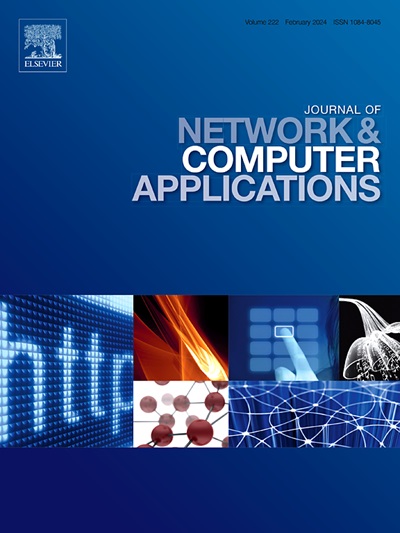Kubernetes云中微服务的能量感知弹性缩放算法
IF 8
2区 计算机科学
Q1 COMPUTER SCIENCE, HARDWARE & ARCHITECTURE
引用次数: 0
摘要
当前的弹性伸缩算法仅限于容器的视角,在设计调度算法时,将在容器内运行的应用程序视为单片应用程序。另外,Kubernetes默认的扩容机制无法有效区分和管理空闲容器的资源消耗,导致资源浪费和系统性能下降。为此,本文提出了一种基于服务水平协议(SLA)的能效模型和一种基于SLA的能量感知弹性缩放算法,以降低部署在Kubernetes中的微服务的能耗。该算法通过释放多余的容器资源,对容器供给中的反馈控制方法进行优化,并定期运行前馈控制算法和反馈控制算法,有效应对工作负载的动态变化。实验结果表明,与Kubernetes中的默认弹性缩放算法和最新算法相比,Kubernetes集群在云环境下的能耗可降低15.34%。本文章由计算机程序翻译,如有差异,请以英文原文为准。
Energy-aware elastic scaling algorithm for microservices in Kubernetes clouds
Current elastic scaling algorithms are limited to the perspective of containers, and applications running within containers are treated as monolithic applications when designing scheduling algorithms. In addition, the default scaling mechanisms in Kubernetes fail to effectively distinguish and manage resource consumption of idle containers, leading to resource waste and degraded system performance. Therefore, this paper proposes an energy efficiency model based on Service Level Agreement (SLA) and an energy-aware elastic scaling algorithm based on SLA to reduce the energy consumption of microservices deployed in Kubernetes. The proposed algorithm optimizes the feedback control method in container provisioning by releasing excess container resources, and periodically runs the feedforward control algorithm and the feedback control algorithm to effectively deal with the dynamic changes of the workload. The experimental results show that the energy consumption of Kubernetes clusters in a cloud environment can be reduced by 15.34% compared with the default elastic scaling algorithms in Kubernetes and the latest algorithms.
求助全文
通过发布文献求助,成功后即可免费获取论文全文。
去求助
来源期刊

Journal of Network and Computer Applications
工程技术-计算机:跨学科应用
CiteScore
21.50
自引率
3.40%
发文量
142
审稿时长
37 days
期刊介绍:
The Journal of Network and Computer Applications welcomes research contributions, surveys, and notes in all areas relating to computer networks and applications thereof. Sample topics include new design techniques, interesting or novel applications, components or standards; computer networks with tools such as WWW; emerging standards for internet protocols; Wireless networks; Mobile Computing; emerging computing models such as cloud computing, grid computing; applications of networked systems for remote collaboration and telemedicine, etc. The journal is abstracted and indexed in Scopus, Engineering Index, Web of Science, Science Citation Index Expanded and INSPEC.
 求助内容:
求助内容: 应助结果提醒方式:
应助结果提醒方式:


